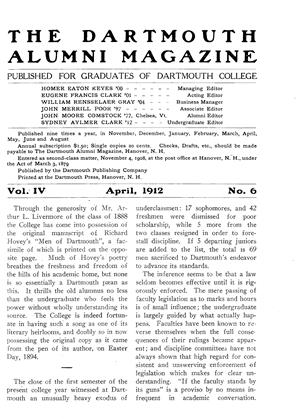H. H. HORNE. New York: the MacMillan Company, 1912. Pp. 197+ xvi.
The problem of free will is one in which we have learned much on both sides; but, as the author frankly admits, not yet enough for an undoubted solution. Professor. Home's book is designed to supply "the need of a clear, brief treatise covering both sides of the issue in outline, to which students might be referred . . . " (p. viii). The topic is developed in good, logical order. The wide interest and bearings of the question are pointed out in the first chapter, "Analogous Issues". An historical sketch of opinion follows, emphasizing the gradual spread of the belief in freedom in the modern Western world. Chapter III defines the issue; the next three chapters give the arguments for determinism, their rebuttal, and the arguments for freedom—which last is the author's view. The list of arguments is fairly complete, but the current "anti-intellectualist" attack on determinism is not clearly defined, and its importance barely suggested. The statement of the pragmatic view in Chapter VI is hardly fair,—to say "the wish is father to the thought" (p. 155.) without mentioning the mother—fact—gives a radically false impression of pragmatism. The last chapter, "The Difference It Makes", is excellently conceived. Two lapsuscalami must be mentioned: "the wrongdoer . . . misses his ideal like Tantalus misses the refreshing cup ..." (p. 144) and "no true man will throw all the responsibility off himself onto the system" (p. 141). In spite of much repetition in the arguments the book is clear and its enthusiasm should be stimulating to the student.
 View Full Issue
View Full Issue
More From This Issue
Books
-
 Books
BooksFaculty Publications
December 1935 -
 Books
BooksShelflife
July/Aug 2002 -
 Books
BooksOptimism Qualified
December 1976 By DAVID A. BALDWIN -
 Books
BooksHELPING YOUTH IN CONFLICT.
JULY 1965 By GEORGE H. KALBFLEISCH -
 Books
BooksTHE PSYCHOLOGY OF BIRDS: AN INTERPRETATION OF BIRD BEHAVIOR.
JUNE 1967 By LAWRENCE KILHAM, M.D. -
 Books
BooksAMERICAN SHIPS.
FEBRUARY 1972 By STEPHEN G. NICHOLS JR. '58







